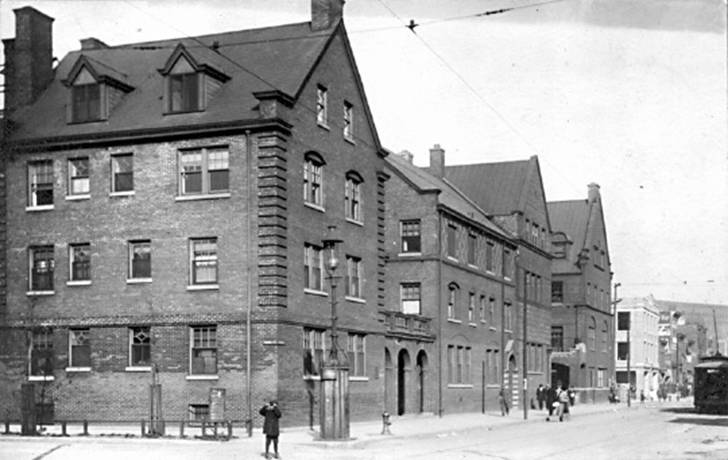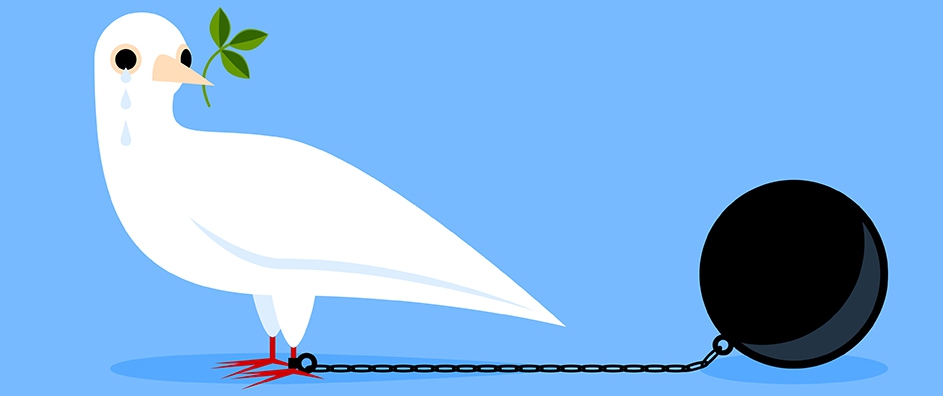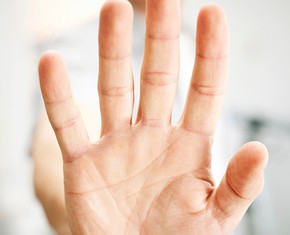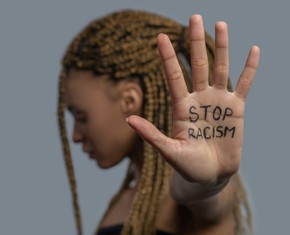The views expressed in our content reflect individual perspectives and do not represent the authoritative views of the Baha'i Faith.
Through our ignorance and lack of viewpoint we divide this common home, we divide the members of this family into various races, we divide religion into different sects and then with those suppositional divisions we wage war against one another; we shed one another’s blood and we pillage one another’s possessions. Is not this unpardonable ignorance? Is this not the height of injustice? Were we just and could we observe without prejudice we would realize that there are no fundamental differences. – Abdu’l-Baha, Divine Philosophy, pp. 178-179.
In the previous essay in this series we met Jane Addams, the famous American suffragette, social worker, international antiwar activist and Nobel Peace Laureate. In April of 1912 she invited Abdu’l-Baha to speak to an overflow crowd at Hull House, her pioneering Chicago institution for the homeless.

When he spoke there, Abdu’l-Baha no doubt noticed that those who gathered at Hull House to hear him speak were predominantly white. Hull House, one of the country’s most progressive institutions at the time, catered to poor European immigrants—Italians, Poles, the Irish—and not to the large numbers of African-American freed slaves or their descendants who had moved north and begun to populate Chicago’s ghettos.
Abdu’l-Baha constantly advocated for, insisted on and exemplified the Baha’i principle of the elimination of prejudice, even where it was illegal. He encouraged integration, interracial marriage and racial unity in the era when American Jim Crow laws mandated the strictest segregation between races. He purposely sat African-Americans next to him in hotels and banquet halls, scandalizing and amazing managers, owners, and the all-white audiences of the time. He spoke out publicly against the pernicious racist theories of the era such as eugenics, and continuously called for the uniting of the races, an end to racism and race-based hatred. To a large gathering of journalists who interviewed Abdu’l-Baha earlier that day, for example, he said:
…all religious, racial, patriotic and political prejudices are the causes of war and the destroyers of the edifice of humanity. All these must be discarded and abolished. – Mahmud’s Diary, p. 70.
So on that April afternoon in Chicago more than a hundred years ago, Abdu’l-Baha didn’t say the same things he had told other, similar audiences at institutions for the poor. A few months earlier he had spoken to another huge crowd of homeless people at the Bowery Mission in New York, and a few months before that he gave a speech to a packed Mission Hall in Paris. In those cases, he spoke to the impoverished people he addressed about their spiritual nobility. But at Hull House, Abdu’l-Baha looked out on the mostly-white crowd and spoke about racism:
…there is need of a superior power to overcome human prejudices, a power which nothing in the world of mankind can withstand and which will overshadow the effect of all other forces at work in human conditions. That irresistible power is the love of God. It is my hope and prayer that it may destroy the prejudice of this one point of distinction between you and unite you all permanently under its hallowed protection. Baha’u’llah has proclaimed the oneness of the world of humanity. He has caused various nations and divergent creeds to unite. He has declared that difference of race and color is like the variegated beauty of flowers in a garden. – Abdu’l-Baha, The Promulgation of Universal Peace, p. 67.
This strong insistence on the unity of the races didn’t stop with Abdu’l-Baha’s advocacy for racial harmony, either. He also repeatedly made it clear that the world’s peace depends on humanity’s ability to reject tradition, self-interest and racial prejudice:
I shall ask you a question: Did God create us for love or for enmity? Did He create us for peace or discord? Surely He has created us for love; therefore, we should live in accordance with His will. Do not listen to anything that is prejudiced, for self-interest prompts men to be prejudiced. They are thoughtful only of their own will and purposes. They live and move in darkness. – The Promulgation of Universal Peace, p. 42.
When the racial elements of the American nation unite in actual fellowship and accord, the lights of the oneness of humanity will shine, the day of eternal glory and bliss will dawn, the spirit of God encompass, and the divine favors descend. Under the leadership and training of God, the real Shepherd, all will be protected and preserved. He will lead them in green pastures of happiness and sustenance, and they will attain to the real goal of existence. This is the blessing and benefit of unity; this is the outcome of love. This is the sign of the Most Great Peace; this is the star of the oneness of the human world. – Abdu’l-Baha, The Promulgation of Universal Peace, p. 57.
If you harbor any prejudices, the Baha’i writings say, you can best serve the cause of peace by working to eliminate them:
The time has come when all mankind shall be united, when all races shall be loyal to one fatherland, all religions become one religion and racial and religious bias pass away. It is a day in which the oneness of humankind shall uplift its standard and international peace like the true morning flood the world with its light. – Abdu’l-Baha, Foundations of World Unity, p. 16.
Practically, getting rid of those prejudices and biases takes hard work. It requires a consistent focus on consciously building a new personal reality, on breaking down the mental and emotional barriers that separate us from other people. But when it happens, it can create peace internally and externally:
Prejudices of religion, race or sect destroy the foundation of Humanity. All the divisions in the world, hatred, war and bloodshed, are caused by one or other of these prejudices. The whole world must be looked upon as one single country, all the nations as one nation, all men as belonging to one race. Religions, races, and nations are all divisions of man’s making only, and are necessary only in his thought; before God there are neither Persians, Arabs, French nor English; God is God for all, and to Him all creation is one. We must obey God, and strive to follow Him by leaving all our prejudices and bringing about peace on earth. – Abdu’l-Baha, Paris Talks, p. 131.
















Comments
Sign in or create an account
Continue with Googleor